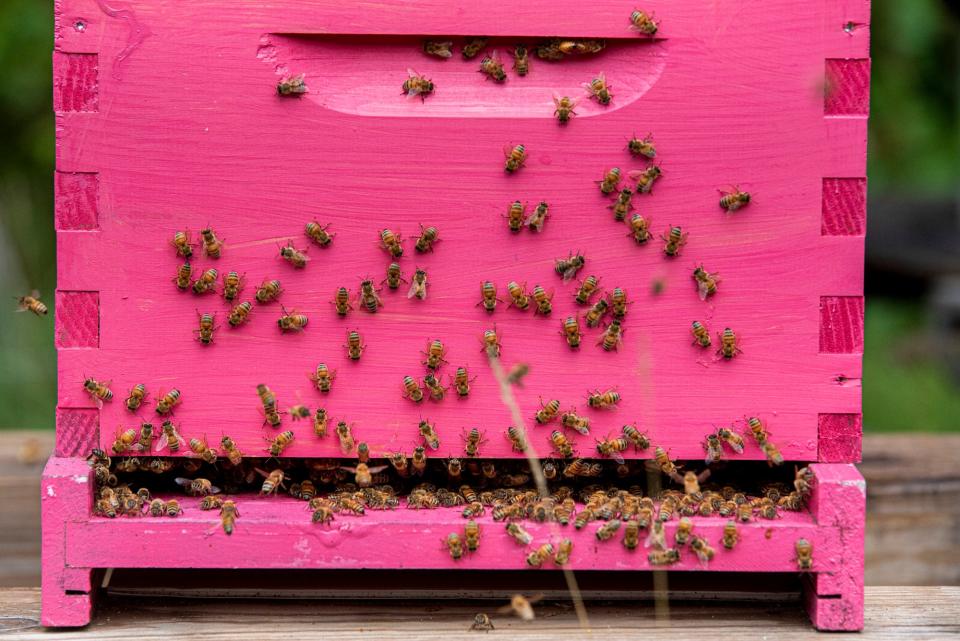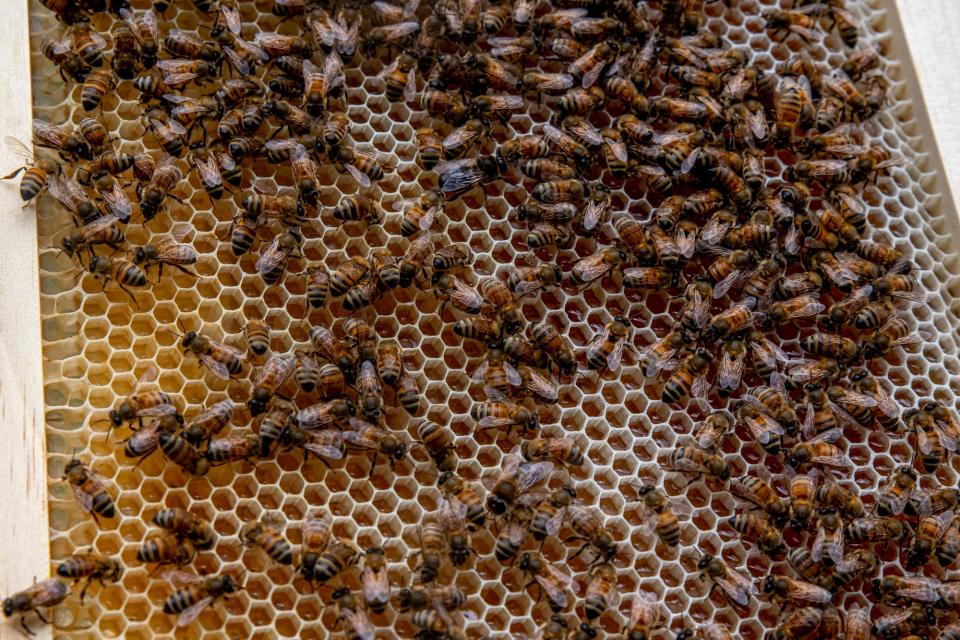'Fully vaccinated queens': First vaccine for honeybees approved in US
The first U.S. vaccine meant to address the global decline in honeybees has been approved by the Department of Agriculture in a move that could help one of the planet's most important pollinators.
The vaccine targets the bacteria blamed for decimating honeybee populations worldwide and could be available this year.
Biotech company Dalan Animal Health, based in Athens, Georgia, gained approval for its prophylactic vaccine to protect honeybees from American foulbrood disease – an aggressive bacterium that can spread quickly from hive to hive, the company announced Jan. 4.
Honeybees play an essential part in about one-third of the fruit and produce Americans eat. Populations have dramatically declined in recent years because of the increasing pressures of climate change, habitat destruction, pesticide use and disease.

The vaccine contains dead Paenibacillus larvae, the bacteria that causes the illness.
The approval is an exciting step forward for beekeepers, said California State Beekeepers Association board member Trevor Tauzer, and paves the way for more vaccines aimed at controlling harmful viruses and pests.
“If we can prevent an infection in our hives, we can avoid costly treatments and focus our energy on other important elements of keeping our bees healthy,” Tauzer said in a statement.
How is the vaccine given to a bee?
Bees do not get jabbed with a tiny syringe for this vaccine. Instead, Dalan incorporates the vaccine into royal jelly, a sugar feed given to queen bees, which then go on to produce worker bees with inherited immunity against that pathogen.
Evidence suggests that immunized worker bees could pass immunity to their sisters over time, similar to how lactating mothers transfer immunity to babies through breast milk, Keith Delaplane, director of the University of Georgia's Bee Program, said in a statement.

When will it hit the market?
The company said its vaccine will be distributed on a limited basis to commercial beekeepers and available for purchase in the U.S. this year.
Camille Fine is a trending visual producer on USA TODAY's NOW team.
What's everyone talking about? Sign up for our trending newsletter to get the latest news of the day
This article originally appeared on USA TODAY: Honeybee vaccine gets USDA approval, could help bee population growth

